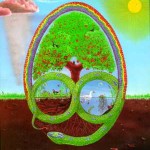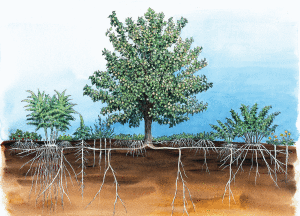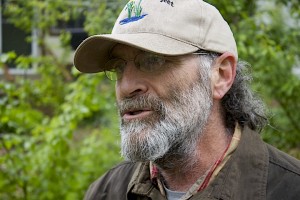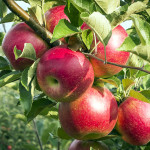2 Day Forest Gardening
Facilitated By Wayne Weiseman
May 9 – 10, 2015
In this two-day workshop we will focus in on the design and development of plant guilds, polycultures and forest gardening taking into consideration the site and all its preexisting natural and human made features.
Come prepared to discuss, put pencil to paper, and learn all the intracacies of planning for high yielding perennial forest gardening.
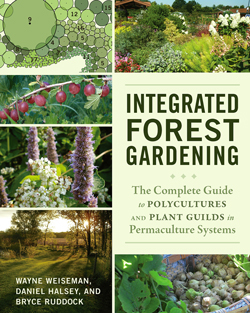
Learn:
- Site Assesment
- Permaculture Design Methodology
- Guild and Polyculture Creation
- Species Selection Criterea
- Implementation Techniques
Where Can You Grow an Edible Forest Garden?
Anyone with a patch of land can grow a forest garden. Whether you have a small urban yard, a suburban lot, or a rural farm you can do it. All that it takes is the desire to start!
Edible forest gardening is not necessarily gardening in the forest, it is gardening like the forest. You don't need to have an existing woodland if you want to forest garden. Forest gardeners use the forest as a design metaphor, a model of structure and function, while adapting the design to focus on meeting human needs in a small space.
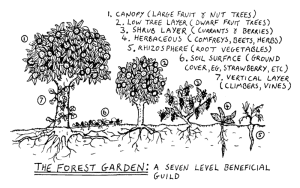
What is Edible Forest Gardening?
Forest Gardening is the growing of fruits, nuts, vegetables, herbs, mushrooms, other useful plants, and animals in a way that mimics natural ecosystems, and is more than the sum of its parts. Through careful design we can create beautiful, diverse, and high yielding perennial gardens that are also largely self-maintaining
Why Grow an Edible Forest Garden?
While each forest garden is dependant upon the given goals and resources at hand all have the potential to:
- Produce high yields of diverse products such as food, fuel, fiber, fodder, fertilizer, 'farmaceuticals' and fun;
- Be largely self-maintaining
- Create a healthy ecosystem that provides food and habitat for birds, insects, and pollinators.
Site Assessment and Master Planning design processes are all-inclusive creative endeavors for all stakeholders involved in the development of a site. The key to Permaculture design is for the stakeholders to be completely immersed in all phases from assessment to design to implementation, management and maintenance.
We are not landscape architects. We are facilitators in which we tap into the creative genius and educate all stakeholders in the principles and methodologies of whole systems design and the Permaculture approach of patterning the world.
In Permaculture circles we say: “The only limitations in planning and the development of a high yielding and energy efficient land base is in the limitations of the imagination of the designers”. Our modern educational system does not support this kind of creativity. The development and implementation of a site is an ongoing and thorough educational process, a regenerative, restorative process in all areas of life: mineral, plant, animal, and especially, human.
Permaculture is about whole systems, not about separate components. Because each element in a landscape or the built environment affects every other element at a site, a complete, comprehensive assessment is tantamount to develop healthy, productive, energy efficient relationships between elements for the benefit of everyone and everything involved in day-to-day operations and life.
By paying attention to all details: topography, climate, water, wind, sun, activity nodes and corridors, buildings, machinery and tools, the waste stream, plants and animals, it enables us to make best use of what is already on the ground, and what we intend to put there. With a dynamic interaction of elements in process, and an assessment of both spatial and temporal attributes, organized around sound ecological principles, we can maximize yields and balance the landscape.
Who is Wayne Weiseman?
Teacher, Designer, Consultant, Author…
Wayne Weiseman is a Permaculture teacher, designer, consultant and author. He lives in Carbondale, Illinois with his wife, Frances and daughter, Halima. He was certified to teach Permaculture by Bill Mollison, the founder of Permaculture, and is recognized by the Worldwide Permaculture Network as an instructor of the Permaculture Design Certificate Course. Mr. Weiseman is certified by the American Institute of Architecture (AIA) and the American Society of Landscape Architects (ASLA) to teach continuing education in Permaculture to licensed architects and landscape architects. Wayne has taught hundreds of Permaculture Design Certificate courses and advanced work, lectured and consulted internationally for many years. His design portfolio includes numerous master plans for various clients.
Wayne has worked as a schoolteacher and as a consultant to educators and administrators in curriculum and professional development. As a primitive wilderness instructor, he relies on observation techniques and a thorough understanding of the natural world to ply his trade. He has worked extensively with corporate executives in the art of team building, and the application of ideas in business and life developed through the observation of the cycles and connections found in the natural world. He has worked as a builder and contractor, herbalist, renewable energy expert, and farmer for the past thirty years. For many years Wayne managed a land-based, self-reliant community project combining organic crop/food production, ecologically-built shelter, renewable energy and appropriate technologies.
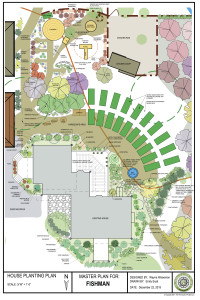
Wayne is the founder and director of The Permaculture Project LLC, a full-service, design, consulting and educational business that promotes eco-agriculture, renewable energy resources and eco-construction methods. He is also the director of education at Kinstone Academy of Applied Permaculture, an educational organization teaching advanced, applied Permaculture and whole systems design, located in Fountain City, Wisconsin. He is currently serving as a member of the board of the Permaculture Institute North America (PINA), a national certifying organization for Permaculture designers and educators.
Author
Wayne is co-author of an authoritative book on integrated forest gardening and plant guilds that was published in August, 2014.
The book is available on Amazon at this link: Integrated Forest Gardening: The Complete Guide to Polycultures and Plant Guilds in Permaculture Systems. The book is also available through it’s publisher, Chelsea Green Publishing – IFG, or purchase an autographed copy at the workshop directly from Wayne.
Wayne Weiseman and The Permaculture Project LLC can be contacted by emailing permacultureproject@gmail.com or calling (618) 713-0537.
Location: College of Charleston
School of Science Building Room 138
202 Calhoun St, Charleston, SC
Cost: $120
Prior regristration is required, as materials must be prepared.
Payment covers two days of classes, two lunches, materials, and a whole lot of fun!
Earth Care People Care Fair Share
 surpluspermaculturedesign
surpluspermaculturedesign